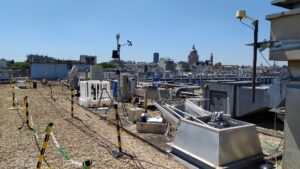Séminaire
Bioplastics: new perspectives or old problems ?
Daniela Piazzese
Daniela Piazzese est professeure à l’université de Palerme, ce séminaire est organisé par METIS-IPSL.
Description
Petroleum-based plastics have caused a turning point in global markets since the 1950s, but nowadays, the growing quantity of their wastes and non-biodegradable nature have contributed significantly to aggravating environmental problems and ecosystem damage. Recently, bio-plastics are increasingly replacing conventional plastics, becoming a useful alternative in manufacturing, food packaging, and biomedical applications. We can distinguish a class of compounds, called bio-plastics (alginate, chitin, chitosan, keratin, etc.), which consists mainly of polymers directly extracted from natural sources, and another group of polymers chemically or biologically synthesized from monomers of renewable origin, more generally named bio-based derivatives.
To the latter group of materials also belongs a large number of substances which can be synthesized from fossil fuel and also partially or even entirely from renewable feedstocks [ poly(ethylene terephthalate) (PET), polyolefins (polyethylene (PE) and polypropylene (PP)), poly(ethylene terephthalate) (PET), polyurethanes (PUs), polycarbonates (PCs), etc.]. Based on this classification and considering the literature now available, it is to be underlined that it is not always true that all bio-based materials are biodegradable or all biodegradable plastics are bio-based. So it is much more appropriate to consider that bio-plastics may show generally a very high but not necessarily complete level of biodegradability in nature and/or also in “specific controlled environments” in accordance with specific international rules, based on determined standard test methods.
Despite expectations, many recent studies have shown that bioplastics production processes are not always sustainable. In addition, many questions concerning mechanical, physical, thermal and rheological properties still need to be addressed, in order to be able to safely say that these materials can have the appropriate sustainability characteristics for optimal reuse and recycling in the framework of a real circular economy.
Furthermore, few ecotoxicological and environmental impact studies have been performed to date, so no real prediction can yet be made about their possibility of being considered as a new opportunity.
Informations supplémentaires
Lieu : salle Darcy (présentiel exclusif) Sorbonne Université – 4 place Jussieu – Paris 5e – couloir 46-56 3e étage






